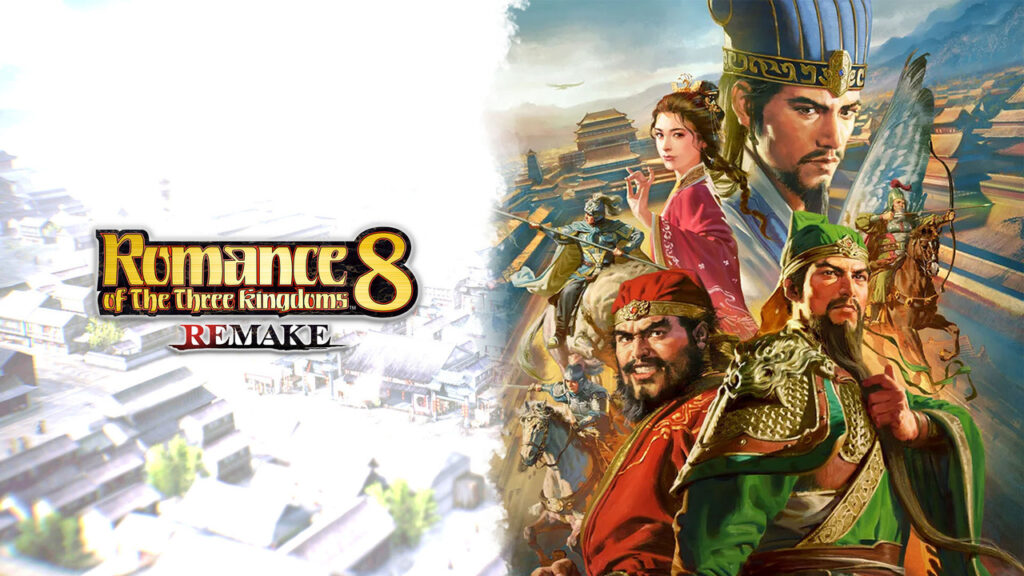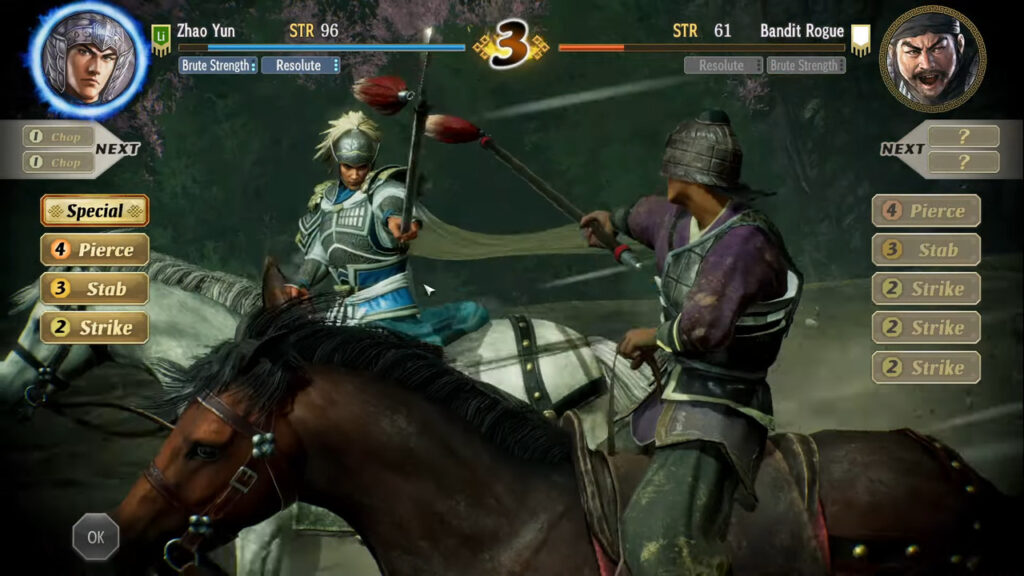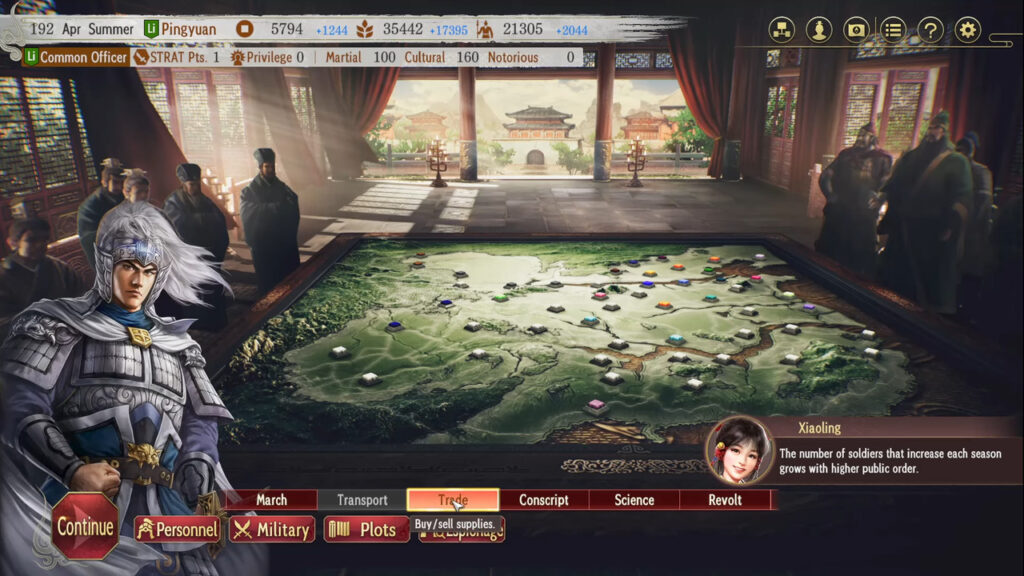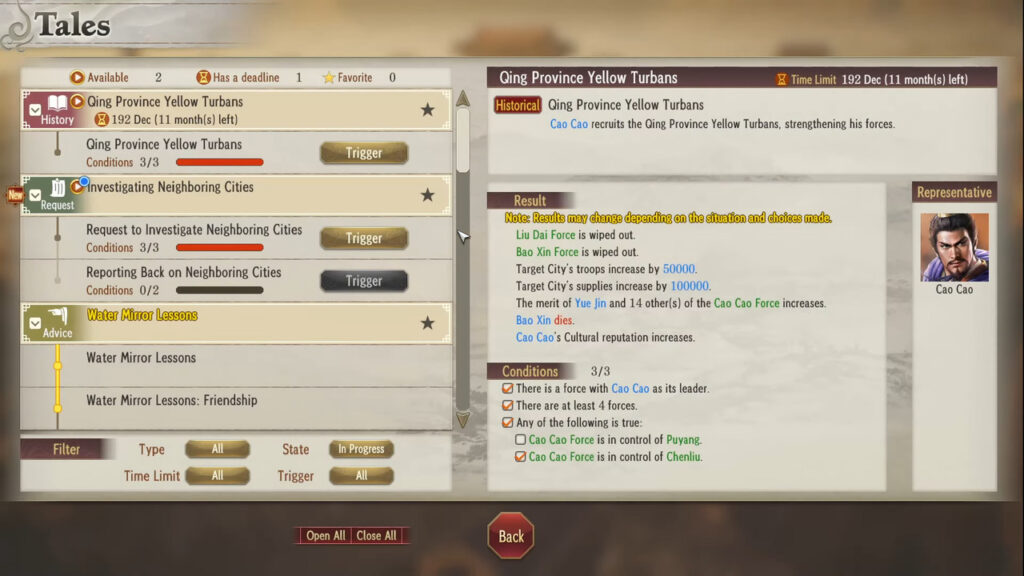
Developer: Koei Tecmo
Publisher: Koei Tecmo
Platform: Switch, PS4, PS5, PC
Tested on: PC
Romance of the Three Kingdoms 8 Remake – Review
When it comes to Koei Tecmo’s history-inspired games, the Dynasty Warriors and Samurai Warriors franchises are probably the most widely known, but it’s not just musou titles that rule the roost. Occupying the same universe are historical grand strategy games that stick to the same aesthetics as Warriors, but these offer a completely different gameplay experience. The strategy counterpart to Samurai Warriors is Nobunaga’s Ambition, which is set in feudal Japan. Meanwhile, Dynasty Warriors focuses on China, as does Romance of the Three Kingdoms. The latter has been a successful and long-running series that just got a new entry. Well, we say new, but as you can tell from the title of our review, Romance of the Three Kingdoms 8 Remake is, well, a remake. The original debuted nearly two decades ago, and there have been several Romance of the Three Kingdoms games released in the meantime. This begs the question of how well Romance of the Three Kingdoms 8 holds up. Fortunately, we’ve got the answer for you.
Story
Based on Luo Guanzhong’s 14th-century novel of the same name, Romance of the Three Kingdoms recounts historical events that took place in China between the years 184 and 280. It’s a tale that spans nearly a hundred years and features hundreds of characters, detailing the fall of the Han Dynasty and how the Jin Dynasty took over China. Romance of the Three Kingdoms 8 lets you relive key moments from this tale, and even offers up the chance to alter the course of history as you try to take up your rightful place as ruling monarch. As such, there isn’t a specific overarching narrative. Instead, there are dozens of scenarios that you can play through, and these will shape themselves around your decisions. A new feature introduced in the remake are so-called “Tales”, unlockable visual novel segments that flesh out the relationships between different characters. Not only do these segments expand on the historical events from the novel, but reading through them also offers in-game benefits, so they are definitely worth checking out.
Graphics
As gorgeous as Romance of the Three Kingdoms 8’s aesthetics are, the visuals of the game are a bit of a letdown. The hand-drawn artwork is top notch but the characters are represented through static portraits. The vast majority of your time in the game is spent looking at menus. Combat offers a bit more visual variety, particularly during duels, but the 3D character models are easily the weakest that Romance of the Three Kingdoms 8 has to offer in terms of graphics.
Sound
There is a bit of an oddity going on with Romance of the Three Kingdoms 8’s voice acting: The game only offers Japanese voices. It was of course made by a Japanese developer, but this is still odd given that it is set in China. We speak neither Japanese nor Chinese, but we do know that both languages are very different phonetically. For a historical game, it would have been nice to have the option to listen to Chinese voice acting. That said, the cast does a decent job of adding emotion to the dialogue. Music has always been a highlight in Koei Tecmo’s shared historical universe, and Romance of the Three Kingdoms 8 certainly doesn’t disappoint in this regard, offering an orchestrated soundtrack that adds an appropriate feeling of grandeur.
Gameplay
Don’t let Romance of the Three Kingdoms 8’s age fool you into thinking that this is a simple or dated grand strategy game. More recent entries undoubtedly flesh out certain elements further, but there is still plenty for genre enthusiasts to sink their teeth into here. Apart from the aforementioned “Tales”, the game tries to stick as close to the original as possible, albeit with a couple of layers of polish here and there. The gameplay takes place across three major phases: a political phase, a city management phase, and a battle phase. All three of these phases play an important role in the success of your campaign. The best way to get an idea of how Romance of the Three Kingdoms 8 plays is to quickly break down each phase. Politics is easily the most intriguing and layered aspect of the game. Every three in-game months, parliament will convene. During this convention, you can negotiate, scheme, and issue orders that affect both your own kingdom and those surrounding you. At first glance, this is a simple phase as you’re simply making choices, such as whether you want to forge an alliance by wooing a neighbor or by subjugating them. However, there are subtle nuances here, and a clever strategist will orchestrate the flow of the game through words and not through his blade. Of note here is that negotiations involve a simple minigame with cards, determining just how successful you are at your duel of wits.
Most of your time in Romance of the Three Kingdoms 8 won’t be spent in parliament, however, but in your capital. Every month, a city phase happens. This is where you manage your capital’s economy, dedicating funds to things like food production and building up your military force. Fans of micromanagement in particular will enjoy this phase, although it is probably the most static and bland part of the game. It’s not bad as far as city management goes, but it’s all par for the course. This is easily the aspect of Romance of the Three Kingdoms 8 that suffers the most from the game’s age. Unlike the previous two phases, the game’s turn-based battles don’t necessarily happen at set intervals. While battles undoubtedly play an important role in Romance of the Three Kingdoms 8, it’s important to keep in mind that the game focuses on realpolitik first and foremost. This actually does bleed into the way the game handles battles, as your allies can boost your performance in battle. The turn-based battles are fast-paced and allow you to employ a myriad of tactics, like ambushes. Combined with various unlockable skills for your military commanders, this means that the strongest army doesn’t always win, but the smartest one typically does.
There are over 50 available scenarios and around 1000 playable officers, not counting the ones you create yourself. The core gameplay experience remains the same throughout, although which officer you choose also determines the game’s difficulty level. If you’re starting out as a lowly commoner, you’ll face a much harder run than when playing as a noble general. We could delve deeply into some of the game’s finer intricacies, such as your lord’s reputation, the relationship tree, or synergy with other characters, but ultimately, those boil down to being fancy spreadsheets. There’s nothing wrong with that, mind you. In fact, it’s a hallmark of the kind of game that Romance of the Three Kingdoms 8 is. It’s just very difficult to explain how enjoyable those aspects are without enjoying them, as they sound very boring on paper. If you can get into the flow of the game, you can literally spend hundreds of hours scheming your way to China’s political top.
Conclusion
Over the last few decades, the Romance of the Three Kingdoms series has established itself as one of the mainstays in the grand strategy genre. Romance of the Three Kingdoms 8 reaffirms that reputation by delivering a solid and engaging game that you can easily sink a ton of time into. Of course, being a remake, the game has already proven its worth in the past, but it’s great to see just how well it holds up without the bells and whistles that more recent entries have added. The visual presentation is a bit of a letdown, and we’d have preferred Chinese voice acting, but ultimately, this is definitely a game worth checking out if you’re a fan of the genre.









No Comments